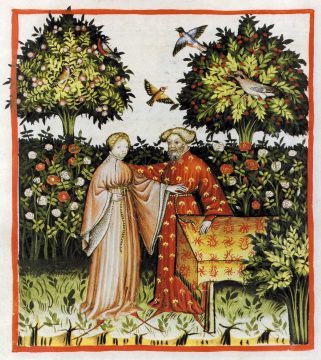Clair Wills at the NYRB:

“Ordinary time” is that part of the liturgical calendar, between Easter and Advent, when nothing much happens. But ordinariness also stands for life lived under temporal constraints, for the commonplace experience of being human. Questions of free will and the shape given to private thoughts and desires hover at the margins of both of these novels. And it cannot be a coincidence that in both novels those questions are posed by a clerk who takes on the role of a priest, without having the authority to administer the sacraments or to shrive sins. In The Corner That Held Them, the false priest is Ralph Kello, a clerk who turns up at the convent gate in 1349, claiming to be a priest because he is hungry, and who becomes trapped by his lie for thirty years. In To Calais, it is Thomas, a religious scholar but not an ordained priest, who is forced by circumstance to hear the last confessions of dying victims of the plague. In the act of confessing to the living, rather than to God, whose pardon is required? In the absence of the sacrament, the confessions are nothing but stories—nothing more or less than a means for people to ask forgiveness of one another, and to give it. In this scenario confessing is like talking, or thinking, and the basis of enlightenment measured on a human, and ordinary, scale.
more here.
